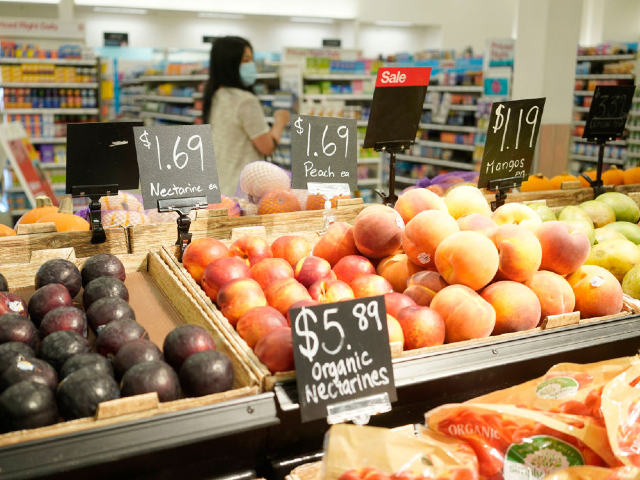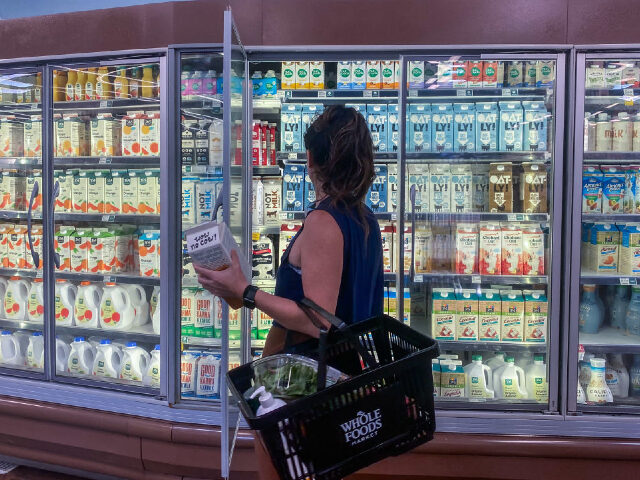While American consumers are itching for grocery prices to drop amid rising inflation, food manufacturer executives are saying prices will not be decreasing anytime soon, according to ABC 7.
Historical data shows that food prices tend to steadily rise — approximately two to three percent annually — and rarely decrease.
From 1974 to 2021, there were only two years when prices dropped, government data shows.
Food prices in August rose at the fastest rate since 1979, Breitbart News reported. Food inflation in August rose by 12.4 percent from the previous year, while grocery store prices increased by 13.5 percent.
Consumers may get a slight break as retail prices are expected to stabilize, but manufacturers are preparing for increased production costs.
Research company IRI expects food prices to increase by five to ten percent next year as producers deal with increased “labor and commodities costs,” ABC 7 noted.
Furthermore, General Mills expects its production costs to increase by 14 to 15 percent in the 2023 fiscal year due to rising prices for ingredients such as nuts, fruits, and flavors.
Producers cite having to deal with severe drought and flooding, diseases such as the avian flu, which has been ruining crops and killing egg-laying hens, and the war in Ukraine as reasons for increased costs.

SAN MATEO, CALIFORNIA – SEPTEMBER 13: A customer shops at a supermarket on September 13, 2022 in San Mateo County, California. (Photo by Liu Guanguan/China News Service via Getty Images)
Despite the increase in production costs, consumer demand is still high at grocery stores as eating out remains expensive and more work from home.
As Breitbart News reported recently, while some consumers are changing their eating habits due to inflation, they are still continuing to shop, albeit for less expensive items.
This means companies can pass costs along to retailers as long as demand remains high, ABC 7 noted.
While retailers will bear the brunt of high production costs, it sometimes takes a while before consumers are hit with those increased costs.
Changing food prices at supermarkets requires changing thousands of labels, resulting in an arduous labor task for store owners. This meant that prices “tend to stay in place” following price hikes, as retailers are hesitant to change prices frequently, according to food industry analyst Andy Harig.
You can follow Ethan Letkeman on Twitter at @EthanLetkeman.

COMMENTS
Please let us know if you're having issues with commenting.